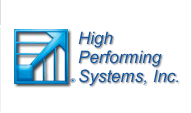by Karen Schwind
“Amy, meeting in five minutes in room 409.”
Amy’s phone rings. A client has questions about the new system.
“Amy,” the VP’s assistant calls down the hallway, “Mr. Smith is in his office. He wants to speak with you before the meeting.”
When she emerges from a stressful, emotionally charged call with a major client, Amy finds a room full of peers waiting in 409 and the Vice President irate because she has not been to his office. Still feeling the stress and emotional overload from the client call and faced with an irate boss, Amy freezes, unable to make a decision or prioritize the tasks she faces. Brian, Amy’s colleague, tells her to take a deep breath, then get to the VP’s office and he’ll begin the meeting with a topic that does not concern her.
Later, she thinks back on what happened and knows something has to change; she has to manage her stress better or find another job.
The scenario above plays out daily in organizations across the country. Most people realize that doing more with less will continue to be the norm for businesses and non-profits in the foreseeable future. Because of downsizing, employees often find that they are expected to work both in their areas of expertise and in areas for which they have little talent or experience.
And technology makes it more difficult than ever to leave the office at work. As a result of smartphones and laptops, sixty-one percent of Americans work while on vacation—after taking only half of their paid vacation time (Fottrell)! Employees feel stressed and overwhelmed, working long hours with short vacations and knowing that they have to do more with less.
In fact, stress impacts workers to a far greater degree than they are aware and is a key contributing factor to chronic illness and the $2.9 trillion dollars Americans spent on health expenditures in 2013 (CDC, 2015). Sixty-six percent of all visits to primary-care physicians can be attributed to stress. Two hundred million people take medication for stress—everything from aspirin to anti-depressants and heart medications. Seventy-five to eighty-five percent of industrial accidents involve stress. Decreased productivity, short staffing and employee injury are byproducts of stress that greatly impact the overall health and bottom line of the organization.
In Amy’s case, stress controlled the situation and caused her to freeze. Her emotions took over, and she was unable to make critical decisions in a stressful situation. A powerful tool to help individuals such as Amy become aware of the impact of and build resistance to stress is the ARSENAL Assessment. The ARSENAL Assessment identifies the seven best practices for recognizing, coping with and mitigating the effects of stress. A personalized report identifying the individual’s overall stress level and current performance in each of the seven best practices provides the information needed to create a Development Plan for building stress resilience.
Being able to recognize and combat the signs and symptoms of stress is crucial for professionals, but stress resilience is imperative to the day-to-day operations within all levels of any organization. Become more aware of stress, its impact on you and which tools you can use to reduce and combat stress when it occurs by taking the ARSENAL Assessment. This first step will help your organization and team build the resilience it needs to handle stress. Help yourself and your team build stress resilience so that you are ready today for what comes tomorrow.
References
Fottrell, Q. (2014). Americans only take half of their paid vacation. Marketwatch. Retrieved at http://www.marketwatch.com/story/americans-only-take-half-of-their-paid-vacation-2014-04-03
Martin, S. (2012). Our health at risk. Monitor, 43 (3), 18. Retrieved from
http://www.apa.org
Health Expenditures. (2013). CDC/National Center for Health Statistics. Retrieved from
http://www.cdc.gov
The ARSENAL Assessment can help you manage stress, develop stress resilience and make better decisions. It is based on the ARSENAL Model (above) of the seven best practices that are key to resisting the negative effects of stress. ARSENAL measures your overall level of stress as well as how well you are doing now in each of these seven areas.
To learn more about the ARSENAL Assessment, including how to become certified, contact HPS, Inc., at 706-769-5836/800-535-8445 or visit here.
For a printable PDF of this Article, click here. |
